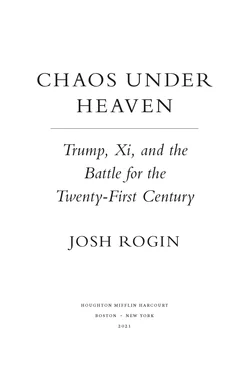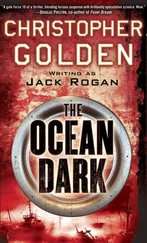Around the region, China flexed its muscles at the very moment its neighbors were most vulnerable. Chinese troops crossed into India over the Himalayan border, provoking armed confrontations. The CCP’s rubber-stamp legislature passed a new national security law for Hong Kong, destroying the concept of “One Country, Two Systems” that Hong Kongers had depended on to maintain their freedom of speech and limited autonomy from Beijing. Immediately after passing the law, Hong Kong police began arresting high-profile members of the prodemocracy movement and raiding independent media organizations. China’s threats against Taiwan, its provocations in the South China Sea, and its repression of the Uyghurs all increased, too. The rest of the world was too distracted to object.
But China’s behavior did not go unnoticed. The Chinese government was simultaneously presenting itself as the global protector—the country to which other nations could turn for help—while also threatening to withhold that help unless countries agreed to avoid criticizing Beijing. Its coercive, strong-arm tactics demonstrated that China would not be a benevolent global superpower. They also turned domestic populations in countries around the world against China. In democracies, governments had to respond to their people’s demands. When the people in Europe and Australia, for example, demanded investigations into the origins of the virus, Beijing threatened their governments. These governments realized—many for the first time—that their dependence on China was a political vulnerability.
Every country in the world was now waking up to the reality of dealing with the CCP; many shifted their strategic calculus as a result of this awakening. The UK government, for instance, reversed its earlier decision and decided to ban Huawei from its networks. (Pompeo traveled to London to celebrate.) After the Netherlands recalled thousands of defective masks sent from China, Beijing threatened the country, angering its people. The Dutch government responded by gently asserting its independence and upgrading the name of its representative office in Taiwan, a symbolic gesture of support. The Chinese government threatened to hold back medical aid as punishment. Similarly, after the Australian government called for an investigation into the origins of the virus, China punished the country economically by boycotting beef imports, a gut punch to the Australian economy in the middle of the pandemic crisis.
For those in the American government who had yearned for an aggressive, US-led counterattack to China’s assault on the world order, this was nothing short of a godsend. But the United States was not fully able to take advantage of the bad will that China was building around the world—because back home, the Trump White House was creating too much bad will of its own.
“Beijing Biden”
If Beijing’s instinct was to make the best of a bad situation, Washington’s seemed to be to make it worse. President Trump insisted on suspending US contributions to the WHO as punishment for its perceived pro-Beijing stance and then withdrawing the United States from the organization altogether—not a good look during such an acute international health crisis. Pompeo refused to sign off on a G7 statement regarding the pandemic in part because the other G7 countries refused to call it the “Wuhan virus.” Trump, who was supposed to host the 2020 G7 meeting in June, delayed it first until September and then canceled it outright. “It’s a very outdated group of countries,” he said, insulting America’s allies for no discernible reason.
Over the summer of 2020, the polls in the United States showed clearly that Americans in both parties were souring on China due to the pandemic and calling for a tougher US policy toward Beijing. For the Democrats, this was a problem; they wanted to take a tougher stance on China but didn’t want to appear to be punishing it for the pandemic, because that could be seen as validating Trump’s efforts to deflect blame for his own domestic failures in dealing with the crisis. Also, there were real concerns that Trump’s anti-China rhetoric was fueling an increase of attacks on Asians and Asian Americans. To show they were active on China, during the pandemic the Democrat-led House passed several bills on Tibet, the Uyghurs, and Hong Kong, which all went through with strong bipartisan support. But when the Republicans put forth bills that sought to assign blame for the outbreak to China or call for investigations into the virus’s origins, House Speaker Nancy Pelosi ordered her caucus not to cooperate with the Republicans.
When Indiana GOP congressman Jim Banks put forward a resolution calling for an investigation into the virus’s origin, Representative Seth Moulton was the only Democrat to sign on. His fellow House member Democrat Judy Chu called Moulton and told him he was supporting racism. He took his name off the bill. There were other signs that the coronavirus pandemic was destroying the budding bipartisanship in Congress on the China issue. The two parties had been working for over a year to plan a new China task force to coordinate policy and move important legislation. But the Democrats pulled out the night before the task force was set to be announced.
Trump exacerbated this break in bipartisanship by actually ramping up the racism, using terms like “Kung Flu” at rallies. The Biden campaign switched from accusing Trump of being too tough on China to accusing him of being too deferential to Xi in the early stages of the pandemic. At the Democratic National Convention in early August, China was hardly mentioned. But when it came time for the Republicans to hold their convention, China was the featured villain. Trump brought up the “China virus” several times in his convention appearances. Donald Trump Jr. focused on a statement put forth by senior intelligence official William Evanina that suggested the leadership in Beijing wanted Trump to lose because he was so “unpredictable.” “Beijing Biden is so weak on China that the intelligence community recently assessed that the Chinese Communist Party favors Biden,” the president’s eldest son said. Nikki Haley declared that Biden is “great for Communist China,” while Trump is “tough on China.” Campaign adviser Kimberly Guilfoyle said Democrats “will selfishly send your jobs back to China while they get rich.”
As the United States headed into the November 2020 presidential election, the US-China relationship was essentially frozen. There were no more Trump-Xi phone calls. Trump joked that Xi probably didn’t like him anymore. Knowing that their time in power might be short, Trump officials raced to put in place as many new China policies as they could manage before the end of the year: The State Department declared Chinese state media outlets and the Confucius Institute headquarters in the United States to be “foreign missions,” meaning they had to report on their activities to the federal government, as did their hired lobbyists. A presidential proclamation was issued banning researchers from China in STEM fields if they had any association with the Chinese military. The Trump administration ordered the closure of the Chinese consulate in Houston, which was suspected of running extensive spying and research theft operations. The FCC named Huawei and ZTE as national security threats, banning the use of federal funds to purchase their equipment.
The Chinese leadership, meanwhile, seemed content to wait for the election result before trying to reengage with Washington in a serious way. Pompeo traveled once to Hawaii to meet with Yang Jiechi, the Politburo member who first visited Trump Tower after the election. But despite the long trip for both sides, neither arrived with any substantive ideas for how to move the relationship forward and they left having made no progress.
Читать дальше











